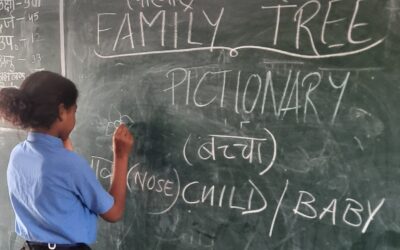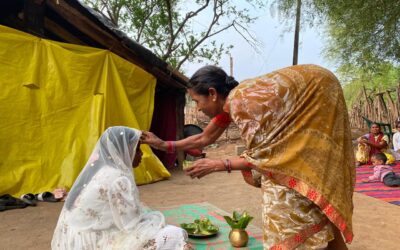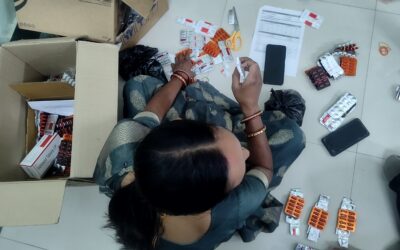Picture by Mahir Bhatt, a 2017 fellow
Trigger Warning: This is a case of suicide, as narrated by Sister Rani, a senior nurse at Swasthya Swaraj in Kalahandi, Odisha
There was a sudden hustle in the clinic, almost a sort of panic as a tribal woman was brought carried by her husband. It was Parbati Majhi, from the village Tadadei, unable to move or respond, almost unconscious. Her mother had come as well, trembling and barely able to speak. Parbati had tried to commit suicide by consuming poison. What poison? When? All these questions were unanswered as she was alone in the house when it happened. It was only because of a distinct smell that the husband suspected poisoning.
“But we need to know what she consumed!” Dr. Aquinas, the founder of Swasthya Swaraj, was trying to use all her experience and knowledge to determine what exactly she had taken. All we could figure out from the symptoms was that it was an organic compound, such as a pesticide or a fertiliser, and it had been some time since she took it. While the pulse rate was high, all other vitals were appearing stable, so there was hope. A stomach-wash was conducted as per the medical procedures.
It was the third time that Parbati was coming to the clinic, and every time it was due to an attempt to end her life.
She belonged to the tribal community ‘Kutia Kond’, which formed the majority of the population in the areas where the organization was working. Every time, the family was either clueless or at least appeared to be clueless as to why Parbati did what she did, and nobody knew what she had been through to take such a decision.

As soon as she stabilized, it was time to start the treatment for OP (organophosphate) poisoning. During this stage, the patient enters a state that is referred to as being ‘Athroponized‘ – she was still unconscious but her muscles would twitch involuntarily, with all her strength. This became a bit of an issue while an IV line is connected to her wrist. Parbati had to be held, by four people, as she moved uncontrollably with all her might. She was really strong, and everyone was surprised to realize how hard it was to keep her down.
Her drip took more than 40 minutes to get over, but her energy was not forgiving. After the medication, she seemed to be doing better, and even responded at instances.Sister Rani, a senior nurse in the clinic, who was also the in charge of treating Parbati, was relieved, as it was the first time that she was dealing with a suicide case here. Everyone was exhausted.
Also Read: What Motivates Us?
A few hours later, there was another set of calls. Parbati’s oxygen level was dropping dangerously low, and we couldn’t determine why. An ambulance was called in a couple of hours, which would take her to Kashipur, the nearest town, as we did not have the equipment required to keep her alive. She left in a bad state, and later passed away in the Kashipur hospital.
When we heard the news, it was a shock for everyone. She had stabilized and everything was going well. Sister Rani, who was the most invested in the case, was silent. She had never faced such a case before, and neither had the organization ever accepted a patient at such a critical state. There were a lot of emotions flooding her mind, with the one recurring the most being that of helplessness. Sister Rani had the privilege to be highly educated, had excelled in her field and had gained a lot of experience with suicide victims, but today, she was powerless. There was nothing she could do!
What affected her more was what could have been done. If she was in a clinic with all the modern facilities in a developed area, her knowledge would have saved Parbati. Today, in an alienated community with the most basic equipment, her expertise was a burden, a reminder of how medicine and technology have only progressed for the privileged. This is what it truly means to work in a low resource setting, and while change is slow, Sister Rani chooses to battle with reality, believe in humanity, and dedicate her life for those who have nothing.




0 Comments